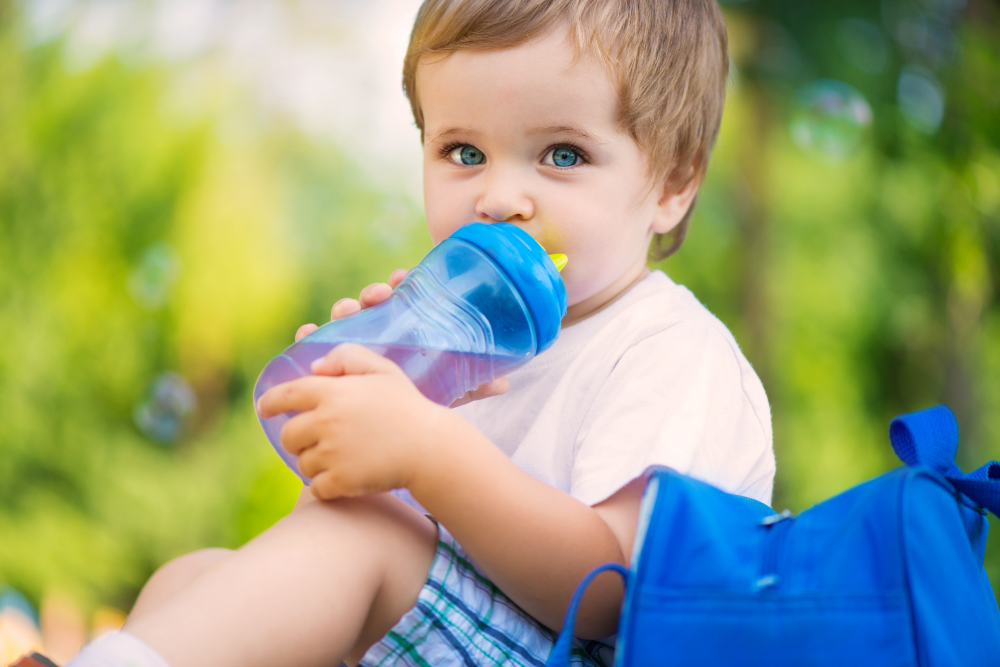“Drink more water” is something that’s drilled into us as adults partial to salty food and hangovers. There’s been a lot of debate of late as to how much water you should drink – but did you know that for babies, the life elixir can be dangerous?
While most people are aware that babies need either breast milk or formula, it’s good to be aware of the risks of water when it comes to feeding tiny humans and their not-yet-fully-cooked kidneys.
What is water intoxication?
Water intoxication is the name given to a condition brought on by the consumption of excessive water. It can lead to confusion, psychosis, seizures, and even death. As adults, we’d need to consume vast quantities of water to bring about the potentially fatal sodium changes seen in water intoxication, but for tiny babies, it only takes a little.
Why can’t babies drink water?
Physicians from the John Hopkins Children’s Center in Baltimore say that babies younger than six months old should never be given water on its own as a drink, reports Reuters. The reason is that although water intoxication is rare, it can be brought on in infants whose kidneys are not yet fully developed.
Without fully functioning kidneys, giving too much water to an infant can cause their bodies to release sodium, which is crucial for proper nerve function. The condition brought on by sodium loss is called hyponatremia, and it can be deadly.

A child’s kidneys should be fully formed and better able to tolerate water after one year. Image credit: Spass / Shutterstock.com
Water intoxication in babies
The brain is one of the first areas affected when water intoxication takes hold, which is why drowsiness and confusion are common early symptoms. Unfortunately, with the symptoms being subtle, water intoxication may go unnoticed until it has become more severe.
According to Dr Christopher Carrubba, who spoke to Parents.com, other symptoms of water intoxication in a baby can include:
- Dizziness
- Lethargy
- Confusion
- Swelling of the face and limbs
- More than eight wet diapers in a day
Avoiding water intoxication in infants
The most common risks for water intoxication in infants are being given water at too early an age, or through over-dilution of formula. Spreading awareness as to why babies can’t drink water can tackle the first issue, and the latter can be avoided by making sure to always check the instructions for preparing formula before feeding it to babies.
Can babies ever be given water?
There are some circumstances in which it’s appropriate to give older infants water, said pediatrician Dr Jennifer Anders to Reuters Health. As a constituent part of formula is one, but physicians may also recommend it for certain situations such as heat exposure or constipation.
If you’re concerned about an infant and water intoxication, speak to your healthcare provider for advice.
All “explainer” articles are confirmed by fact checkers to be correct at time of publishing. Text, images, and links may be edited, removed, or added to at a later date to keep information current.
Source Link: Water Intoxication: Why Can't Babies Drink Water?